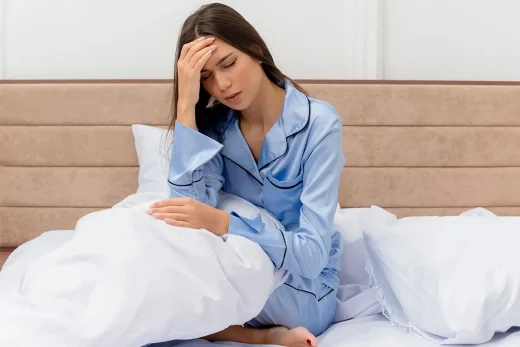The constant desire to sleep is called hypersomnia in the medical literature. Many health problems can disrupt sleep quality and lead to constant sleep cravings. In this blog, you can find a comprehensive answer to the questions of what is hypersomnia, what reasons for excessive sleeping, and how to treat excessive sleeping.
What is hypersomnia?
Hypersomnia is the presence of excessive sleepiness during the day. The constant desire to sleep can occur even after prolonged sleep. Another name for hypersomnia is excessive daytime sleepiness. This is the occurrence of repetitive sleep stages on the same day or the sudden fall asleep. Even if patients sleep enough at night without interruption, they feel the need to sleep with daytime sleep attacks. The most common problem among sleep disorders is oversleeping.
Who gets hypersomnia?
Research has revealed that this problem is seen in men rather than women. However, it is thought to affect approximately 5% of the population. The diagnosis is usually made during adolescence.
Hypersomnia symptoms
Common symptoms of this health problem include:
- Recurrent episodes of hypersomnia during the day.
- Sleeping longer than average yet still being very sleepy during the day.
- Difficulty waking up in the morning or after daytime naps, sometimes appearing confused or combative.
- Slow thinking, inability to focus/concentrate, memory problems.
- Headache.
- Loss of appetite.
- Hallucinations.
- Daytime naps don’t lead to improved alertness.
- Anxiety, irritability.
- Decreased energy.
- Restlessness.
- Chronic tiredness
Causes of hypersomnia
It is very difficult for doctors to measure the complaint of constant desire to sleep. People can express this condition with different symptoms. Whatever the reason, wanting to sleep continuously during the day should be medically evaluated and elaborated. Excessive sleeping causes include:
- Hard working
- Stress
- Depression
- Side effects of drugs used
- Aging
- Head trauma
- Obesity
- Drug used
- Alcohol use disorder
- Vitamin deficiency
- Thyroid hormone disorders
- Other underlying medical conditions
How is hypersomnia diagnosed?

The excessive sleepiness and fatigue are often the result of an underlying health problem. By correctly diagnosing the underlying cause, the best treatment method can be determined. Your doctor will want to know your current complaints and the level of your complaints. He or she will ask questions about your lifestyle and the medications you use. Questions about your mental health may be asked. A series of physical exam tests may also be done by your doctor. Various tests can be done to diagnose hypersomnia. These:
- Polysomnography:You need to sleep in the sleep center for one night. During this time, some parameters such as your eye movements, heart rate and oxygen levels are examined.
- Multiple sleep latency test: You will need a short sleep to be monitored under the supervision of a doctor. The types of sleep you experience in the test are reviewed.
- Sleep questionnaires:You may be asked to complete a questionnaire asking you to assess your sleep. As a result, it is estimated what the underlying cause is.
Idiopathic hypersomnia
It is a disease characterized by chronic sleepiness, which is thought to develop on a neurological basis. Although the age of onset may vary, it is most commonly seen between the ages of 15 and 30. The disease progresses gradually, settles and lasts a lifetime unchanged. There is a level of daytime sleepiness that affects daily performance. Patients therefore complain of prolonged daytime sleepiness that is not restful. The night’s sleep is long and uninterrupted.
Excessive sleepiness after covid
In recent years, some health problems have increased with the pandemic. Especially in those who have had the covid-19 virus, excessive sleepiness disorders are observed. Excessive sleepiness after Covid-17 continues for approximately 3-6 months. This condition is considered a complication of the disease. But don’t worry. Because it is temporary. During this time, eat a vitamin-rich diet. Drink plenty of water and don’t get too tired.
Excessive sleepiness in elderly
Sudden excessive sleepiness in elderly is observed old age. But this may not only be due to old age. It can also develop due to any underlying medical cause. For example, problems such as sleep apnea, heart disease, etc. can cause this condition.
Excessive sleepiness after eating
Too much sleepiness can be observed after eating. However, this situation occurs when the consumption of carbohydrates increases. However, excessive sleep after meals can also be seen in diabetics. For this, it is important to balance insulin resistance.
How is excessive sleepiness treated?
For the hypersomnia treatment or idiopathic hypersomnia treatment, the underlying cause must first be determined. As a result, cause-oriented treatment is applied. However, your doctor may recommend medication. But the most effective treatment is a change in your lifestyle. You can avoid this problem with regular exercise, sleep and nutrition.
If you have a few of the symptoms associated with this illness contact the Erdem Hospital call centre.